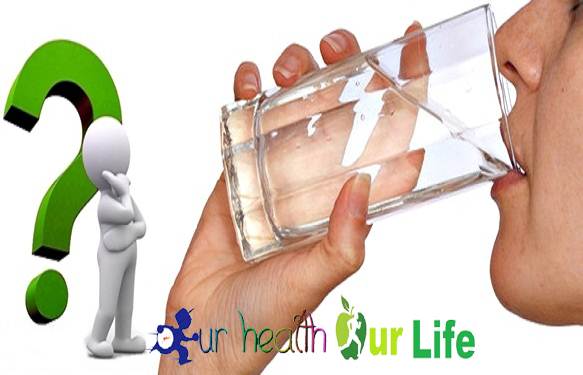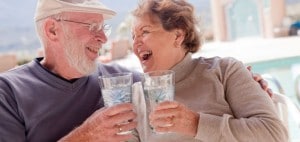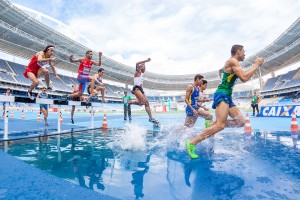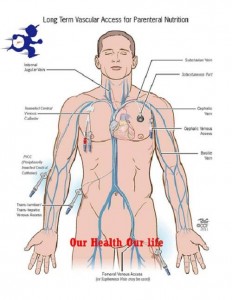How much water should I drink a day if I am a sedentary person or if I train weights, if I am an athlete, if I work, if I study, if I go out holiday, etc.?
Really although it is true that it is very necessary and important to stay hydrated during the day, the amount of water to drink while we are awake varies by person, age, sex, level of physical activity and exercise, a clinical picture that may arise, etc. Hence then the article title is not “how many glasses of water should I drink a day?” Because it is not as if all the vessels have the same volume, so the standard recommendation to drink or to drink 8 glasses of water day for many people may be somewhat exaggerated, and for others it may be somewhat insufficient. So in this article we will talk about how much volume of water must take on a normal day and one training, approximate values using the measurement unit mL (milliliter). Because such a small glass may have the capacity to store about 200 mL (0.2 L), a glass medium approximately 250 mL and a large glass approximately 300 mL. I will also touch in this article, although very fleetingly, why is not that recommended drinking or drink lots of water one? Case for example of those who overdo drinking more than 400 mL of water at one (two glasses of small water fasting, for example), with the alleged purpose of activating the organs, to help “burn” more fat and not get dehydrated when what they are doing is a possible harm to your body by excessive work caused by the kidneys, being able to unleash a possible dis-equilibrium hydro mineral (lots of water and lack of control between the amounts of sodium and potassium), by the factor of ” Super hydration” which can lead to the death of many erythrocytes ( RBCs) to reach in extreme cases suffer sudden death, etc.
So, the real question should be: how many mL (milliliters) of water a day should I take to keep sufficiently hydrated (a) without endangering my health?
Water has a high amount of properties and meets a high number of functions in our body, from thermoregulation to the fact actively participate in the digestive process, since it is carried out through hydrolysis, it is means binding of a water molecule with another molecule compound. This means that for and who believed that during the digestive process spent some of the same energy consumed by these foods recently consumed, for this is not because of being the digestive process would not be something homeostatic, ie “expend energy that comes to newly acquire energy?” “What kind of metabolic process would it?” (Although good, it should be noted that at all times a greater or lesser extent our body expends energy and what I refer to the above is that what we eat does not enter an energy metabolism of the digestive process). Or more focused would say that to degrade food to their smallest part energy release given that this process is carried out by hydrolysis (of course, after the action of certain enzymes) is not necessary. Thus, the water is very important, but it seems that many people, even some who call themselves nutritionists, the “over-recommend” getting to the point of saying it is good to drink plenty of water before, during and after eating, when right would drink half or a small glass (200 mL) of water 30 minutes or at least 10 minutes before meals, since the water acting on the digestive process is already found previously assimilated and circulating in the blood.
In addition, the water consumed with food may lead to an inefficient process as digestion (crushing-degradation) and subsequent absorption of nutrients, given that it can alter gastric pH and composition of some digestive enzymes. Our body is intelligent but we must not abuse their wit, as when performing intake excessive quantities of water (or even if they are moderate) one, even more so during meals, this (our body) must decide what to do with both liquid. In many people dizziness, nausea and a feeling of fullness experienced, and many say it is best to achieve weight loss, and yes, possibly accomplish but will be mainly by malnutrition caused by this factor (lots of water and little nutrient intake just by drinking plenty of water and have a full stomach), but then lose as much body fat as possible lean muscle mass, and possibly bone density see precisely affected by malnutrition (low calcium, low phosphorus, low vitamin D) to get bloated of water and not eating properly in both quantity and quality.
So really for a sedentary person drinking or 8 small glasses of water a day (about 1.6 L) or more can be harmful to health, not just mentioned in terms of malnutrition that can be generated, but by the fact that many red blood cells, before a very watery blood plasma, should be filled to the force of water which will explode, a process known as hemolysis, and in mild cases this may simply cause dizziness, in cases slightly more care can lead to loss of consciousness, and in severe cases already named sudden death. To this must be added the hydro-mineral imbalance is caused mainly talking about an excess of water in blood plasma can trigger very low levels of sodium which can lead to cardiac arrhythmias and problems such as bradycardia and ultimately myocardial infarction, because you did not know sodium is an important mineral that is responsible, along with potassium and calcium, regular muscle contractions including of course those of major and appointed striated muscle (myocardium or heart).
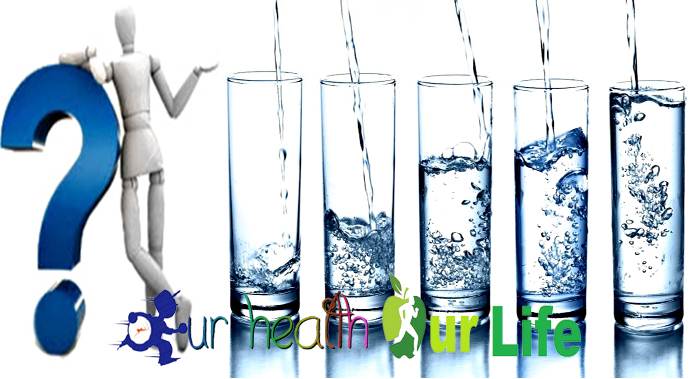
Water consumption of a sedentary person (who does not perform intense workouts or anoxic and even mixed workouts), even if he worked and / or continuously studied for a period of between 8 to 12 hours, there would be greater than 800 or 1000 mL of water during the day. Of course, if the weather is very high that is greater than 30 degrees Celsius, it is likely that this value is near maximum at 1200 mL (1.2 liters). A jar or standard water bottle has a volume of approximately 600 to 700 mL. Making observations and subsequent survey with some colleagues about some college students at most of them and they drink a bottle of water during the school day, being an observation and survey of students of both genders who only studied about 6 to 8 hours daily. Now, men and women who after studying their way to their jobs said they drank during their working day about another bottle of water more, and sometimes not even finished drinking simply because they did not feel the need to do so. So after doing a survey regarding pathologies, they were asked if they had any problems with your kidneys, or some kind of non-communicable disease. 30 surveyed women and 30 men surveyed, only two women and one man claimed to have some principle of diabetes (although it was by having a fatty overweight pronounced), and the other students (aged 18 to 25 years) is not stated have some kind of problem.
With the above it can be concluded that the needs of water a day in sedentary people (who did not exercise or high intensity training) older and even sedentary older adults may be the same (from 1.0 to 1.2 liters of water a day would be less than 8 small vessels 200 mL) or at least very similar. You can not set an exact amount of water needed to drink or take a day according to gender because women may have more lean muscle mass than men or at least very similar levels. The same would apply to cases of people who play sports or other high intensity workouts (anaerobic) or mixed (aerobic / anaerobic).
Now, 10 women between 22 and 28 years and 10 male respondents between 23 and 30 years in a gym, they said that during his training maximum drank a bottle with water 600 mL and some (as) came to the bottle and mean (900 mL water), and sometimes mentioned some and some even finished the first bottle or jar. Sure, your water needs are still in a period of relative rest be greater than those of a sedentary person, although not very significant, since of course require more water to digest and synthesize nutrients. But still, doing very rough calculations, one “not settled” person (who is physically intense exercise and consistently) on a day that combine both training and daily activities (study, work, etc.) need between 1 6 and 2.0 liters of water a day, meaning you could ever need more than 8 small glasses of 200 mL of water daily.
[ads]
Then, this information might lead some to question “how much water do I need a day to gain muscle mass?“. Really though in this case it would be the needs of macronutrients (both protein and carbohydrate and fat). And of course, since water would play an important role in terms of digestion and subsequent synthesis.
IN CONCLUSION: How much water should I drink a day?
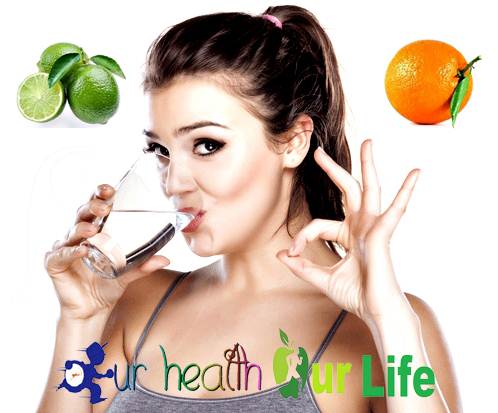
Arguably, then it is wrong to set a standard volume of water to take a day, because to do so many variables come into play, (age, level of training, size, etc.). In addition, the adverse implications of drinking large amounts of water during the day can become very dangerous for health. And speaking in terms of “burn” fat (which is another thing that leads people to wonder “how much water should take a day?”) I must say that although the water itself participates in the biochemical process known as “lipolysis,” or popularly known as “fat burning” is previously assimilated water, and the “burning” of fat as such occurs when the body sees the need to use calories from fatty acids to produce energy or mixed aerobic exercises. It is not as if the water were to burn embucharse of more fat just like that, or is not as if to urinate a lot and clearly is because our body fat is eliminated through the urine, because this is not so.
And of course, if the recommendation is to drink a day for example between 1.6 and 2.0 liters of water, it is not to drink more than a glass of water one, but for example consume 8 to 10 glasses of 200 mL water each during the day to avoid the problems mentioned hemolysis as the des-hydro-mineral balance, etc.
It has much also the amount of current water ratio in the body (level of hydration) / amount of water consumed, so try to avoid the adverse effects that can occur by consuming large amounts of water at one. And of course, the adjective “big” has much to do with the exposed relationship, because if the person is perfectly hydrated, ie if you have a percentage of hydration close by excess or defect to 70%, for even a glass of water small can be somewhat excessive, although possibly not to cause loss of consciousness or sudden death much less, but to experience dizziness. Now, if a person comes from a relatively long period of dehydration, the solution is not to give too much water one, because that itself could cause death (in cases of captivity or shipwrecks, for example), because that red blood cells They are filled faster that large amount of water, and therefore rather than explode as well. So if a person seeks rehydrate after intensive and extensive training (a not so relatively long period, is best done with small sips both during and after your workout, either with water or a beverage having besides this precious liquid, thus some glucose and mineral electrolytes. The same would apply to those who come after sleep period (which itself is a relatively long period of dehydration, although not comparable with a shipwreck).
Now, ideally to measure rates hydration and thus be able to estimate approximate quantities of water to consume daily values, would have a TANITA scale, which throws us values like body fat percentage of lean muscle mass, among others including the percentage of current hydration. In addition, this scale also indicates how many calories you should consume about, so get a value of volume of water consumed in the approximate day, because it is simply multiply this caloric value for 1 cc (cubic centimeter) or 1 mL, which come to be the same. Is then that if caloric consume a person X recommendations are between 1700 and 1800 calories a day, then this person should consume at least between 1.7 and 1.8 liters of water during the day (between 1700 and 1800 mL of water). Of course this value can vary (usually excess) when physical activity or exercise and / or high intensity sports are practiced and possibly also be extensive.
And the other thing to consider and add to what should consume, many people suddenly do not know it is that much of the water intake is included in foods such as fruits, vegetables, juices them (water plus fruit water), etc.

